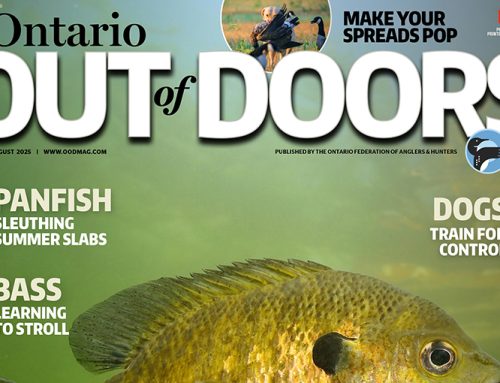
The canine distemper virus (CDV) appears to be severely impacting raccoon populations in parts of western Ontario this year.
Ministry of Natural Resources (MNR) Fish and Wildlife Technical Specialist Jody Scheifley in Owen Sound said his office has received an exceptionally high volume of calls regarding raccoons that are sick or dead due to the virus.
“Normally, we expect to hear about some CDV in raccoons in the fall when young coons are roaming more or during breeding season in late winter,” said Scheifley. “But this past year, we continued to receive reports throughout the late fall, winter and into the late spring, which is abnormal.”
Dr. Doug Campbell of the Canadian Cooperative Wildlife Health Centre (CCWHC) based at the University of Guelph, has confirmed a number of cases of CDV in raccoons this winter through testing at the Guelph facility. “It is hard for me to say whether the disease is epidemic throughout Ontario, but it certainly is prevalent in Grey, Bruce, Huron, Wellington, and Halton Counties.”
“CDV pops up every year in raccoon and skunk to some extent,” he said. “Consider that CDV in mammals is similar to measles in humans, so when an area has high raccoon or skunk populations, there is a greater chance that any infected animal will spread the disease to others in its community.”
In the early stages of the infection, animals will often have thick discharge from the nose and eyes and will have difficulty breathing. In animals in which the virus has reached the brain, neurological signs dominate. The animal may appear disoriented, uncoordinated and lack awareness of its surroundings. Compulsive chewing motions and twitching may also be seen.
CDV typically runs its course within the wild community and burns itself out. It impacts raccoon and skunk populations and its return every year is usual, to some extent.
It’s not transferable to humans but is contagious to dogs. Domestic dog owners should have their pets regularly vaccinated against CDV. Surprisingly, this year, coyote populations seem, for the most part, unaffected.
If you suspect that a raccoon or skunk has CDV, contact your municipal animal control to report dead animals, including birds or bats or contact the CCWHC at 1-866-673-4781.






Leave A Comment